Army vets Low T risks and benefits from Testosterone therapy
Low testosterone (Low T) is a common condition that affects men, and army veterans are at an increased risk for this condition. Army Vets Low T risks can cause a variety of symptoms, including fatigue, decreased libido, and decreased muscle mass. Testosterone replacement therapy (TRT) is a treatment option for men with Low T, and it has been shown to be effective in improving symptoms and overall quality of life. In this blog, we will explore why army veterans are at risk for Low T and how TRT can help improve their health and wellbeing.Why Army Vets Low T Risks lead to Testosterone Therapy consideration
Army veterans are at an increased risk for Low T due to a variety of factors. One of the main reasons is exposure to stress and trauma during combat. The stress and trauma of combat can affect the hypothalamic-pituitary-gonadal (HPG) axis, which regulates the production of testosterone in the body. When the HPG axis is disrupted, it can lead to decreased testosterone levels.In addition to stress and trauma, other factors that can contribute to Low T in army veterans include:- Age: As men age, their testosterone levels naturally decrease peaking at 19 and declining 1-2% in the best of conditions. Army veterans who are older may have accelerated their decline through stressful service.
- Injuries: Army veterans who have suffered injuries, particularly to the testicles or TBI (traumatic brain injury), may experience decreased testosterone production.
- Medications: Certain medications, such as opioids and steroids, can decrease testosterone production.
- Obesity: Obesity is a risk factor for Low T, and many army veterans struggle with weight gain after leaving the military.
- Sleep apnea: Sleep apnea is common among army veterans, and it has been linked to decreased testosterone production.
Symptoms of Low T in Army Veterans
The symptoms of Low T in army veterans can vary depending on the severity of the condition. Some common Low T symptoms include that patients on TRT programs see improvements in:- Fatigue: Low T can cause fatigue and a lack of energy.
- Decreased libido: Army veterans with Low T may experience a decrease in sex drive.
- Decreased muscle mass: Low T can cause a loss of muscle mass and strength.
- Weight gain: Low T can cause weight gain, particularly around the midsection.
- Mood changes: Low T can cause mood swings, irritability, and depression.
- Erectile dysfunction: Low T can contribute to erectile dysfunction.
Benefits of Testosterone Replacement Therapy
TRT can be an effective treatment option for army veterans with Low T. Some of the potential benefits of TRT include:- Increased energy: TRT can help boost energy levels, reducing fatigue and improving overall quality of life.
- Improved libido: TRT can help increase sex drive and improve sexual function.
- Increased muscle mass: TRT can help increase muscle mass and strength.
- Weight loss: TRT can help promote weight loss, particularly around the midsection.
- Improved mood: TRT can help improve mood and reduce symptoms of depression and irritability.
- Improved bone density: TRT can help increase bone density, reducing the risk of osteoporosis.
Risks and Side Effects of Testosterone Replacement Therapy
While TRT can be an effective treatment option, it is not without risks and side effects. Some potential risks and side effects include:- Increased risk of blood clots: TRT can increase the risk of blood clots, which can be dangerous. Make sure your provider tests for and reviews Hematocrit levels.
- Acne: TRT can cause acne and other skin reactions.
- Breast tissue growth: TRT can cause breast tissue to grow in some men if Estradiol levels and the ratio of Total Testosterone : Estradiol is left un checked and not managed.
- Sleep apnea: TRT can worsen sleep apnea in some men
Army vets Low T risks and benefits from Testosterone therapy
Hormone Therapeutics March 21st, 2023
Posted In: Low T Info, Testosterone Therapy
Tags: benefits of testosterone, benefits to your body, depression, erectile dysfunction, fatigue, hormone replacement therapy, low t, testosterone levels, testosterone therapy
How Stress Levels Kill Testosterone
The Effect of Stress on Testosterone
 Stress can lead to many of the symptoms of low testosterone. Stress is one of the earliest and most important hormones when we were the hunted and our fight or flight instincts kept us alive, not happy or healthy. Today is a different time and we rarely need these instincts the same way we did when we were not at the top of the food chain but our body still reacts to stress in the same way we have been programmed. Creating cortisol is just is a much higher priority for the body than creating testosterone when it is stressed.
Stress can lead to many of the symptoms of low testosterone. Stress is one of the earliest and most important hormones when we were the hunted and our fight or flight instincts kept us alive, not happy or healthy. Today is a different time and we rarely need these instincts the same way we did when we were not at the top of the food chain but our body still reacts to stress in the same way we have been programmed. Creating cortisol is just is a much higher priority for the body than creating testosterone when it is stressed.
Stress causes our adrenal glands to secrete cortisol which prepares our bodies and minds to handle the stressful situation. In small amounts, cortisol is fine and can be very useful. Elevated cortisol levels for prolonged periods damage our bodies and minds.
Several studies have shown a link and correlation where increased cortisol levels often leads to low testosterone. That does not mean that supplemental testosterone or naturally increased testosterone will lower your cortisol levels but evidence does show that.
Here are some practices to help manage your stress and cortisol levels
- Exercise regularly
- Don’t smoke
- Avoid excessive caffeine and alcohol
- Meditate for 20 minutes each day
- Take a break when you feel stressed.
- Remove yourself from that situation and feeling. Get up for a walk, stretch your legs and breath in deeply
- Practice deep breathing exercises
- Get adequate sleep
- Focus on being more resilient in the face of stress. Don’t let stress manage you. Decide how you want to allow things to affect you.
There is also a downward cyclical effect when someone is overweight, fatigued and suffering from low libido and erectile dysfunction. This downward cycle can lead to stress and increased cortisol. Naturally increasing your testosterone, or getting help from a specialized physician through a Testosterone Replacement Therapy program can help you lose weight, gain energy, increase libido and decrease erectile dysfunction. Al of this should lead to decreased stress and reduced cortisol levels.
Hormone Therapeutics aims to help people looking to improve and optimize their health through natural means or through the guidance of our physicians.
Don’t miss out our free weekly tips and news on Low T, hormone balancing, healthy living, nutrition and a lot more.
Want more?

Sign up today and Get our ebook, ‘Naturally Increase Your Testosterone Levels’ absolutely FREE.
How Stress Levels Kill Testosterone
Saleamp Design December 6th, 2016
Posted In: Low T Info
Tags: adrenal, alcohol, caffeine, cortisol, erectile dysfunction, exercise, meditate, sex, sleep, stress, testosterone level, Testosterone replacement therapy
How does Testosterone Affect Sexual Health?
Can testosterone improve sexual health?
Many factors fuel the sexual health of men as well as their sexual performance, ability to perform and changes in their ability to function as they once could. Low testosterone plays a significant factor in all of these and treating Low T can improve interest in sex, sexual function and sexual performance.
The Effects of Low T on Sexual Health
While we do understand that testosterone production comes from a healthy HPA Axis, or communication between your Hypothalamus, Pituitary Glands, Adrenals and Testicles, science still does not understand exactly how testosterone improves sexual health or performance. As you probably noticed in High School, College or amongst your friends, there is no normal level of sexual interest amongst men or women.
Like your testosterone levels, it peaks around 19 and usually slowly declines for the rest of your life. Each person takes a different path, however, and declining sexual interest is typically tied to declining testosterone levels. These levels can follow a steady decline, or can be accelerated by health issues, stress, poor sleep and even by keeping sexually active. Many men can lose sexual interest at normal testosterone levels or maintain sexual health even at low testosterone levels but as testosterone levels get depleted it will universally effect sexual interest and performance.
One study of Men in the NE of the US showed 11% of men had a lack of sex drive. The researchers also found 28% of men with low testosterone levels had a low libido which means that men with low testosterone levels were 256% more likely to have low sex drive or low libido. The average age of the study participants was 47.
Low Testosterone and Erectile Dysfunction

Erectile Dysfunction, or ED, can be caused by many health problems including low testosterone, atherosclerosis (hardening of the arteries), diabetes, high blood pressure and high cholesterol. Those last three items all cause hardening of the arteries. If they are damaged, the penis has difficulty dilating and bringing sufficient blood flow required for an erection. Testosterone therapy can lead to increased libido and interaction and connection between the brain and penis.
Viagra is an example of an oral PDE5 inhibitors that encourage an increase in nitric oxide which dilates the blood vessels and encourages more blood flow to the penis. Three potent selective PDE5 inhibitors (sildenafil (Viagra; Pfizer), tadalafil (Cialis; Lilly), and vardenafil (Levitra; Bayer)) are currently available. Testosterone therapy will often increase the libido and sexual function to erase Erectile Dysfunction, but often our physicians will prescribe a combination with PDE5 inhibitors as well.
Studies are showing that men with classic hypogonadism, or low testosterone, have a reduced response to PDE5 inhibitors and see a significant response improvement with Testosterone Therapy. For patients who fail to see ED improvement following TRT and PDE5 inhibitors we can prescribe and test the direct injectable Trimix.
The Connection of Testosterone Levels and Sexual Health
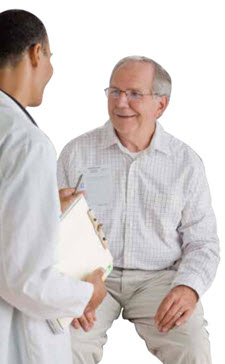 While this sounds like a juvenile sex joke, we are now seeing that lowered testosterone levels lead to a decreased sex life, but that a decreased sex life also can lower ones testosterone levels in a study at the University of Sydney in Australia.
While this sounds like a juvenile sex joke, we are now seeing that lowered testosterone levels lead to a decreased sex life, but that a decreased sex life also can lower ones testosterone levels in a study at the University of Sydney in Australia.
Researchers followed 1,700 men over the age of 70. The study asked questions and measured a number of things. The study tracked the ability to keep and maintain an erection. It measured the frequency that sexual activity led to ejaculation (through masturbation or sexual intercourse). The study also tracked libido and sexual health versus earlier times in their lives.
During the study, all of the men had blood tests regularly taken and the following tests measured: Total Testosterone, Free Testosterone, Estrogen, SHGB and some other hormones.
Researchers discovered a 10% reduction in testosterone levels led to a noticeable decrease in sexual activity but no change in the number of erections. Another study showed that testosterone levels increased on night after sexual activity without any increase on nights where there was no sexual activity. Physicians are concerned that a lack of sexual activity can accelerate low testosterone.
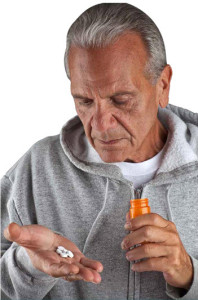 A further study showed that men taking Cialis had higher testosterone levels than men taking Viagra. Both drugs are PDE5 inhibitors to boost nitric oxide and blood flow to the penis. Cialis, however, last 36 hours for most people rather than 6-8 hours. Cialis users typically have more intercourse over this extended time period.
A further study showed that men taking Cialis had higher testosterone levels than men taking Viagra. Both drugs are PDE5 inhibitors to boost nitric oxide and blood flow to the penis. Cialis, however, last 36 hours for most people rather than 6-8 hours. Cialis users typically have more intercourse over this extended time period.
The researchers concluded that “as it is unlikely that the two drugs have a different direct effect on the pituitary-testis axis, this effect is probably due to the higher frequency of full sexual intercourse.”
A Chinese study observed a group of men that abstained from ejaculation for one week and had their testosterone levels tested each day. Research showed that abstaining for 6 days had no effect on testosterone levels, however, on the seventh day the testosterone levels surged to 145.7% of the baseline then plummeted on the 8th day.
The researchers believe the testosterone surge was the result of a negative feedback suppression of Luteinizing hormone (LH secretion) which is essential for testosterone production.
Hormone Therapeutics aims to help people looking to improve and optimize their health through natural means or through the guidance of our physicians.
Don’t miss out our free weekly tips and news on Low T, hormone balancing, healthy living, nutrition and a lot more.
Want more?

Sign up today and Get our ebook, ‘Naturally Increase Your Testosterone Levels’ absolutely FREE.
How does Testosterone Affect Sexual Health?
Saleamp Design November 15th, 2016
Posted In: Low T Info
Tags: atherosclerosis, Bayer, blood flow, boner, Cialis, diabetes, dilates, ED, erectile dysfunction, erection, high blood pressure, high cholesterol, hypogonadism, inhibitors, intercourse, Levitra, LH, LH secretion, libido, Lilly, Lutenizing hormone, nitric oxide, PDE5, PDE5 inhibitors, penis, Pfizer, pituitary, sex drive, sexual health, sexual performance, sildenafil, tadalafil, testes, testicles, testosterone level, testosterone therapy, trimix, TRT, vardenafil, Viagra
Wondering About Low T? Here are the Low Testosterone Symptoms You Should Know
Do you keep noticing commercials about Low Testosterone symptoms, or Low T, and wonder what exactly they are talking about? Are you wondering if you have Low T? We have yet to meet anyone nearing 40, or older, who sees these commercials and can consistently say I never feel like that with the same pep I did when I was younger.
For healthy men, testosterone peaks at age 19 and goes down about 1-2% a year for the rest of your life. We are living 64% longer today than we were just one century ago and different parts of our body age faster than other. An unbalanced or depleted endocrine system has so many men are suffering from the Low Testosterone symptoms. . . but they don’t have to suffer from what so many people just write-off as normal aging.
What is Testosterone?

Testosterone is a naturally occurring and very potent hormone produced in large amounts by all males (and in much smaller amounts in females). Production begins in the womb and then gradually increases for weeks from birth.
Initially, it fortifies the development of male genitalia, then gradually affects every vital physiological system (muscular, circulatory, skeletal, reproductive, etc.)
After reaching physical maturity, testosterone plays a major role in the healthy development of male sexuality. Testosterone levels drastically surge during the onset of puberty. Levels peak at 19, then level o and begin to drop by the mid-30s, by about 1% per year.
What are the Low Testosterone Symptoms?
Except in cases of hypogonadism (medically low testosterone) when it occurs much earlier, most men begin to feel many of the symptoms of low testosterone by their 40s. It’s one reason why our physical and mental capabilities begin to diminish as we age, and it may even contribute to the following life and relationship altering conditions of Low T:
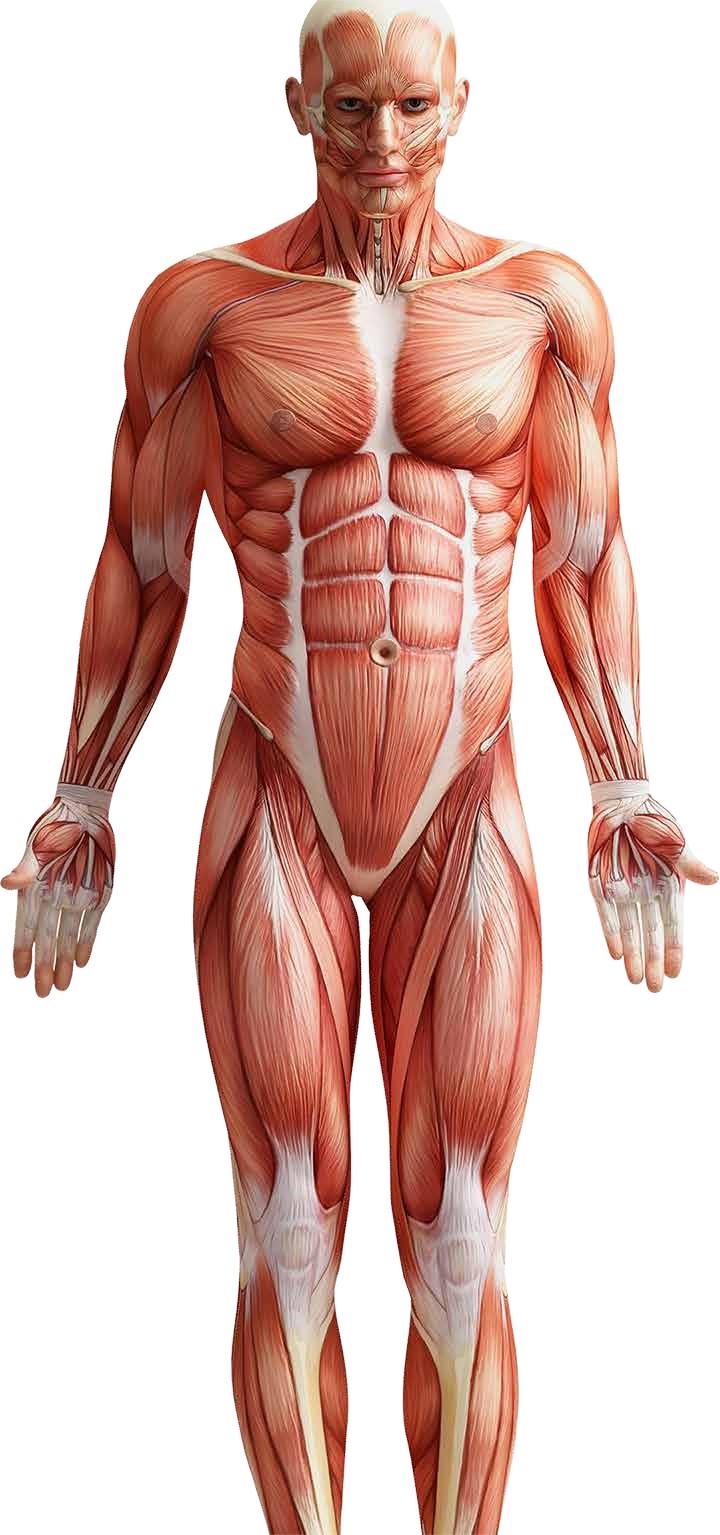
- Loss of Muscular Mass and Strength
- Reduction in Bone Density
- Loss of Skin Elasticity
- Hair Loss/Male Pattern
- Baldness
- Erectile Dysfunction
- Depression
- Fatigue
- Loss of Concentration or Memory
- Weight Gain
- Gynecomastia
- Hot Flashes
- Lower Sex Drive
- Urinary Problems
- Sleep Problems
- Irritability
- Night Sweats
- Hypogonadism
- Adrenal Fatigue
- Thyroid Health
There is a syndrome called Irritable Male Syndrome, or IMS, that’s caused by low testosterone. It is not just having a low libido. This syndrome includes emotional withdrawal, lack of motivation, aggression, personality changes, and anxiety. Irritable Man Syndrome can also present in self-destructive activities including gambling, alcoholism and workaholism.
Sound like you? Low testosterone affects over 13.8 million men in the US. Many of these men are in their 30s and even 20s due to hypogonadism.
Low T effects go beyond sex drive and mood. Testosterone deficiency increases the risk for cardiovascular disease, type 2 diabetes, and bone fractures. Low testosterone increases mortality risk.
800 men were followed for 50 years and the men with the lowest testosterone levels had a 33% greater chance of death, from all causes, than the group with the highest testosterone levels. Another study showed that men with low testosterone had 88% higher mortality levels than men with normal testosterone.
Hormone Therapeutics aims to help people looking to improve and optimize their health through natural means or through the guidance of our physicians.
Don’t miss out our free weekly tips and news on Low T, hormone balancing, healthy living, nutrition and a lot more.
Want more? 
Sign up today and Get our ebook, ‘Naturally Increase Your Testosterone Levels’ absolutely FREE.
Wondering About Low T? Here are the Low Testosterone Symptoms You Should Know
Saleamp Design September 30th, 2016
Posted In: Low T Info
Tags: Adrenal Fatigue, Andropause, Baldness, depression, erectile dysfunction, fatigue, gynecomastia, Hair Loss/Male Pattern, Hot Flashes, hypogonadism, irritability, irritable male syndrome, Loss of Concentration or Memory, Loss of Muscular Mass and Strength, Loss of Skin Elasticity, low t, low testosterone, low testosterone symptoms, Lower Sex Drive, male sexuality, Night Sweats, Reduction in Bone Density, Sleep Problems, testosterone deficiency, Thyroid Health, Urinary Problems, weight gain
Aromatase inhibitor benefits and side effects as part of Testosterone Therapy
Any significant research into TRT will likely also discuss aromatase inhibitor and estrogen management. You will definitely find this on the ‘Bro-Science’ bodybuilding sites focusing on bulking and supraphysiological dosages of testosterone and other anabolic-androgenic steroids that aromatize to estrogen and estradiol.
What is an aromatase inhibitor and what does it do?
Aromatase is the enzyme complex that converts androgens like testosterone into estradiol in men. Weight gain and aging increase the risk for testosterone conversion into estradiol. Estradiol is the “bad estrogen”, responsible for issues including (often) prostate issues, gynocomastia and erectile/libido/hormonal problems. Men find aromotase in their fat cells and as they expand our estradiol will find itself increasing at the same time our testosterone levels dwindle.
An aromatase inhibitors binds to aromatase, disabling it.
Why take an aromatase inhibitor?
AIs will reduce Estradiol levels. Symptoms of high estradiol include gynecomastia (male breast development and enlargement) and edema (fluid retention in the extremities).
Avoid or Reverse Gynecomastia – Estradiol plays a major role in gynocomastia and an AI like Arimidex (anastrozole) – occasionally letrozole is used – is quite effective in managing estradiol levels. The most important thing is to blood test and measure the estradiol levels and look at is on it’s own and as a % of Total Testosterone levels. if a man goes over a total testosterone of about 600 ng/dl, he will very likely need an aromatase inhibitor. The symptoms for elevated estradiol can mimic those for low testosterone, including mood issues, low libido, erectile dysfunction and other estrogenic side effects.

Did you really want to see a before pic?
Clinical research has looked into the use of aromatase inhibitors as an option to testosterone replacement in older men, and to delay bone closure in adolescent boys who are short, to allow them to gain more height.
Is Estradiol important? Role in men of Estradiol:
Since Estradiol is known as a female hormone and elevated levels can cause gynecomastia or edema, many men believe they need to eliminate or suppress it. This is not true, the body produces estrogens in men because we need it.
Estradiol is important in determining bone mineral density in men. Low levels may lead to bone loss and osteoporosis in elderly men. Low estradiol levels increase fat and decrease sex drive and erectile function.
We do not know the optimal estreadiol range but do know that low levels are not good. We also believe taking anastrozole without clinically diagnosed high estradiol levels and symptoms (gynecomastia and edema) can be counterproductive for men on testosterone therapy. Get your advice from a trained HRT/TRT physician and not someone in the gym or a “Bro-science” website.
Potential side effects of Aromatase inhibitors
Aromatase deficiency has been linked to increased insulin resistance, which is a precursor to type 2 diabetes. Animal studies have shown that an absence of aromatase in male rats increases insulin resistance as well as body fat, and “fatty liver” develops. When young, healthy men were given an aromatase inhibitor, they developed slightly increased body fat, particularly within the waist (i.e., intra-abdominal fat). This type of fat is associated with the development of metabolic syndrome, which includes insulin resistance.
Patients with low testosterone should be wary of automatically using aromatase inhibitors, due to a number of potential metabolic effects. For the AAS using bodybuilder, aromatase inhibitors can be necessary to combat aromatization from supraphysiologic testosterone and other AAS dosages. The most important thing is to work under the guidance of a trained HRT/TRT physician and get tested regularly.
Aromatase inhibitor benefits and side effects as part of Testosterone Therapy
Saleamp Design September 13th, 2016
Posted In: Low T Info
Tags: aromatase, benefits to your body, erectile dysfunction, estradiol, estrogen, hormone replacement therapy, hypogonadism, low t, low testosterone, sex drive, testosterone
Linking Erectile Dysfunction and Low Testosterone
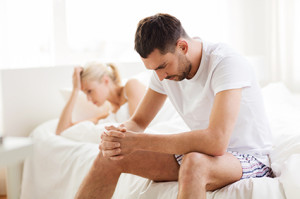 Erectile dysfunction is a common problem that affects many men. This being said, it is important to explore its causes and how it can be addressed. Because of testosterone’s prominence in men’s sexual function, it has been explored as a determining factor in erectile dysfunction. The following study describes how erectile dysfunction and low libido may be related to available testosterone in the body. It also examines how supplementing this testosterone deficiency may provide a better for you.
Erectile dysfunction is a common problem that affects many men. This being said, it is important to explore its causes and how it can be addressed. Because of testosterone’s prominence in men’s sexual function, it has been explored as a determining factor in erectile dysfunction. The following study describes how erectile dysfunction and low libido may be related to available testosterone in the body. It also examines how supplementing this testosterone deficiency may provide a better for you.
Different Types of Testosterone for Erectile Dysfunction
Many do not know that there are different types of testosterone in the body and that it is important to take note of their individual levels within a person’s system. The testosterone level measured when men go to the doctor is typically limited only to Total Testosterone. Patients only get the sum of unbound and bound testosterone present in the patient’s system.
The problem with this that the total amount of testosterone measured is not always fully available for use. Because of the presence of bound and unbound testosterone in the system, the Total Testosterone measurement for a person may not equal the precise amount of testosterone he is actually able to utilize. This is called Free Testosterone.
This is because bound and unbound testosterone are indicators of whether or not a testosterone can be immediately used by the body this Free Testosterone is a more important measure. A bound testosterone is one attached to proteins that need prior removal before it can be used, thereby needing some effort to be utilized. One of the proteins that binds to testosterones is albumin. While albumin does attach to testosterones, it is easily removed by the body when the testosterone is needed.
However, there are also particularly stubborn binding proteins that cannot be removed from the testosterone, thus rendering it unusable. An example of this is the Sex hormone binding globulin, or SBHG. Once SBHG attaches to your testosterone, it becomes unusable due to the difficulty of separating the protein from the testosterone, limiting the amount of available testosterone in the body.
The differences in functions and availability of these kinds of testosterone highlight the need to test for different types of testosterone. In studying testosterone levels in the system, it’s important to take into account the level of total testosterone, bio-available testosterone and free testosterone, along with the prevalence of SBHG proteins in the patients.
Free testosterone refers to unbound testosterones which are readily available to the body and thus, can be used with minimal effort. Bio-available testosterone, on the other hand, corresponds to both the free testosterones and testosterones bound to easily removed proteins such as albumin. SBHG limits the amount of Bio-available testosterone, giving a skewed amount of usable testosterone when analyzing the total count.
Erectile dysfunction’s relationship to your testosterone levels
Because of testosterone’s role as a primary sex hormone that establishes male traits and sex drive, research has been made to explore how testosterone levels and erectile function influence each other.
According to the study, there exists a proportional correlation between testosterone levels and erectile function, linking higher levels of the hormone with an increased sex drive and better erections. In addition to this, it also established that low testosterone levels was consistently present in cases of erectile dysfunction, and that low presence of the hormone may hamper erectile dysfunction medications such as Viagra from working properly.
Ultimately, the study concluded that a low amount of free testosterone coupled with high levels of SHBG posed the highest risk for erectile dysfunction in men, emphasizing the importance of monitoring testosterone levels when addressing the problem. Taking from the study, it goes that while there are many factors that can contribute to erectile function, it is useful to check testosterone levels because it was seen as a consistent influencing factor for erectile dysfunction as based on the data.
Because of testosterone’s effect on erectile dysfunction, aging men who are experiencing its symptoms are advised to first take a testosterone blood test that can measure the amount of total testosterone, free-testosterone and SHBG in their system. Because ultimately, it is free testosterone that determines the ready supply of the hormone in men, testing total testosterone may not provide sufficient information regarding one’s actual hormone levels. By testing all levels of testosterone, doctors may be able to determine if it is this deficit in available testosterone that hampers proper erectile function and sexual performance, providing the patient with better options of addressing the problem.
Hormone Therapeutics can help you learn more about testosterone
With the emergence of treatments for low testosterone levels today, you don’t have to bear its consequences anymore. This is why we have so many wives reaching out to us as well to find help for their loved one. Hormone Therapeutics can help you determine if low testosterone that is causing your sexual problems and provide testosterone replacement therapy, to remedy your concerns. We can treat with testosterone therapy, and/or erectile dysfunction treatments.
If you want to learn more about how to monitor your testosterone levels or fix low testosterone concentration and its consequences, our company can help you clear up your reservations. Give us a call and we’ll be happy to assist you as you take your first step towards improving your quality of life.
Linking Erectile Dysfunction and Low Testosterone
Saleamp Design April 5th, 2016
Posted In: Low T Info
Tags: albumin, Cialis, depression, ED, erectile dysfunction, erection, fatigue, free testosterone, impotence, libido, low libido, low t, low testosterone, sex, sexual function, SHGB, testosterone, Total Testosterone, Viagra
DHEA Benefits and Frontiers
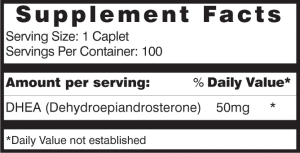 Dehydroepiandrosterone (DHEA) is a naturally occurring hormone produced in the body. Secreted by the adrenal glands, it is precursor to other hormones and is transformed by the body into specific hormones once it reaches the target tissue. As a prohormone, most of it effects are related to its end products as opposed to DHEA itself.
Dehydroepiandrosterone (DHEA) is a naturally occurring hormone produced in the body. Secreted by the adrenal glands, it is precursor to other hormones and is transformed by the body into specific hormones once it reaches the target tissue. As a prohormone, most of it effects are related to its end products as opposed to DHEA itself.
DHEA is gaining traction as an anti-aging supplement. It is also being explored as a treatment for several of the health conditions associated with aging.
DHEA and its effects
DHEA is often touted as a “youth restoring” hormone because of its reputation for slowing down the age process, improving general energy levels and cognitive skills. Because of this, many see it as a solution to regulate the side effects of aging and hormone depletion.
DHEA supplementation has shown an increase in energy, cognitive concentration, greater muscle mass/retention and slowing down the progression of Alzheimer disease. DHEA has been shown to have an influence on erectile dysfunction and lack of sex drive. In addition, Men with low DHEA more often experience depression as well as higher risks for overall mortality, including heart failure and cardiovascular threats.
DHEA Decline with Age
Unfortunately, DHEA production declines as its importance increases. DHEA production reaches its highest point during the 20s, but as one grows older, the body’s DHEA production decreases, leaving as little as 20% of the healthy output by the time one reaches 70.
Since it is a precursor to other hormones, this decline leads to a corresponding effect in other hormones as well. Estrogen and testosterone synthesis, in particular, wane once the DHEA levels decrease. This brings forth several consequences for both sexes. In men, specifically, age-related DHEA decrease leads to a decline in testosterone secretion. This decline is compounded because of the larger role DHEA plays in the production of testosterone as we age.
DHEA Supplements and their Effects
From trials, DHEA supplements have been shown to increase muscle mass, strength and physical well-being in general. In addition, tests of increased concentration, in men and women, have been shown to improve sexual potency and mood, with women experiencing less menopausal symptoms after taking supplements. Overall, DHEA has been seen as an anti-aging supplement, providing bone and muscle strength, better moods and immune system and increased memory.
When tested on patients with diabetes and neurological disorders, DHEA was not seen to improve erectile function and potency in patients. It has also been shown to exhibit minimal side effects such as mild acne, swollen ankles and increased facial hair in some women.
The effect of long term treatment on cardiovascular conditions and hormone-dependent tumors has not yet been studied, or have yielded conclusive results.
DHEA Frontiers
DHEA supplements for anti-aging purposes are currently gaining traction. As a precursory hormone, it is seen by many as a way to regulate hormone balance within the body. In addition, DHEA’s reputation in increased bone and muscle strength, as well as energy, has many physicians exploring DHEA supplements and its effect on bone growth, depression, and other mood and cognitive disorders.
Hormone Therapeutics
Hormone Therapeutics specializes in endocrine and hormone-related treatment, and is committed to finding the best treatment for your well-being. If you’re curious about how DHEA supplements can improve you and your life, Hormone Therapeutics can provide the answers for you. Call us today!
Do You Need Help?
Hormone Therapeutics is the leading national company assisting men who want to get their lives back through Hormone Replacement and Testosterone Replacement therapy. Our local physicians are ready to treat you anywhere in the entire country. Hormone Therapeutics is pioneering an easier, cost efficient and more private way for you to work with our clinical advisors and physicians from the privacy of your home or office after your local physical exam confirms you have one of the symptoms of Low T.
Contact us today and our clinical advisors will work with you on a hormone therapy program that may include prescribed hormones, exercise, nutrition and sleep programs to reclaim your vitality.
DHEA Benefits and Frontiers
Saleamp Design April 1st, 2016
Posted In: Health & Wellness
Tags: brain, brain fog, cardiovascular issues, Cialis, Dehydroepiandrosterone, depression, DHEA, ED, energy, erectile dysfunction, fatigue, hair loss, happiness, heart attack, low t, low testosterone, memory, muscle loss, muscle mass, sadness, sex drive, sexual function, stroke, supplements, testosterone, Viagra
What are the indicators that someone needs Testosterone Replacement?
What are your Total Testosterone and Free Testosterone levels? Do they fall within the norms, are low or high, as described in our other blogs and sections?
What are the indicators that someone needs Testosterone Replacement?
Saleamp Design March 17th, 2015
Posted In: Low T Info, Uncategorized
Tags: androgen deficiency, erectile dysfunction, fatigue, Free Testosterone levels, Hormone Replacement physician, hypogonadism, irritability, low libido, Low T symptoms, low testosterone levels, symptoms of low testosterone, testosterone replacement, Testosterone replacement therapy, testosterone therapy, Total Testosterone
What are Normal Testosterone Levels?
Treating a patient solely based on testing levels is not a proper way to evaluate and treat a patient, however, understanding the normal ranges for a patient is an important piece to the puzzle. What are Normal Testosterone Levels? The normal level of Total Testosterone is often described as between 350-1200 ng/dl (270-1070 ng/dl in another study), however, this range is not associated with age and everyone agrees that men have peak testosterone levels in their early twenties and then slowly decline at 1-2% per year after that. Normal values will vary by lab as will the reference range. In the US, ranges are seen in nanograms per deciliter.
What are Normal Testosterone Levels?
Saleamp Design March 16th, 2015
Posted In: Health & Wellness, Low T Info, Uncategorized
Tags: androgen deficiency, erectile dysfunction, fatigue, Free Testosterone levels, Hormone Replacement physician, hypogonadism, irritability, low libido, Low T symptoms, low testosterone levels, symptoms of low testosterone, testosterone, Testosterone replacement therapy, Total Testosterone


